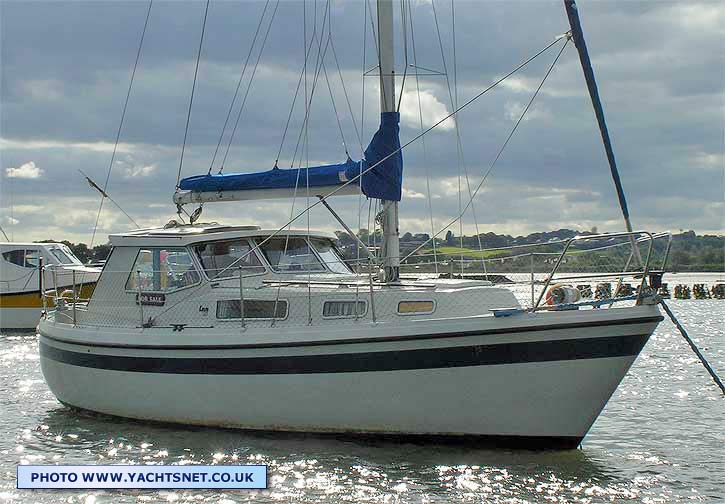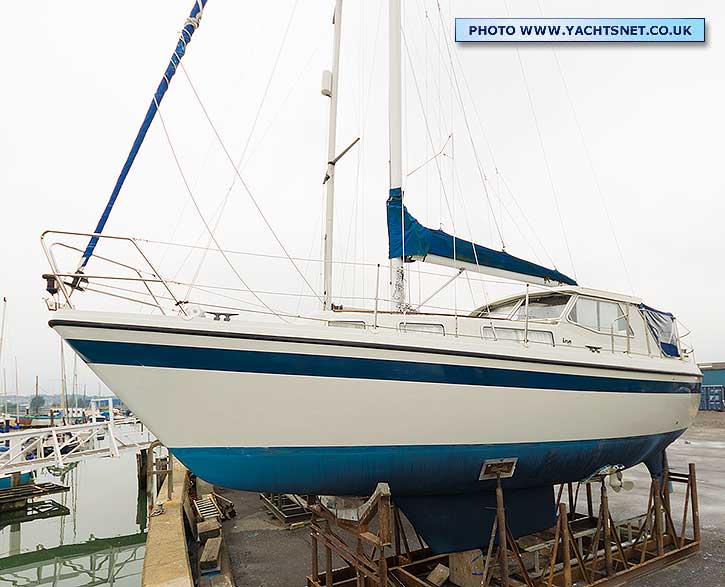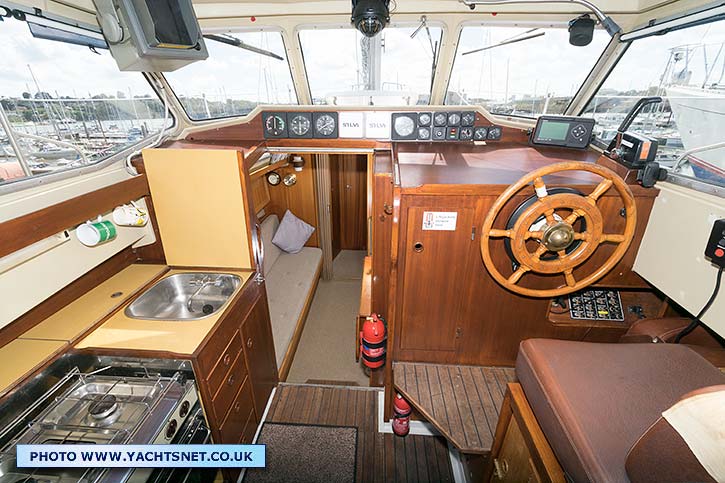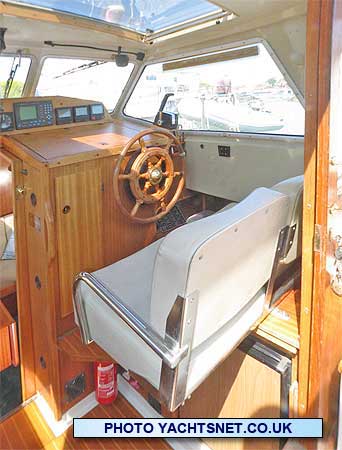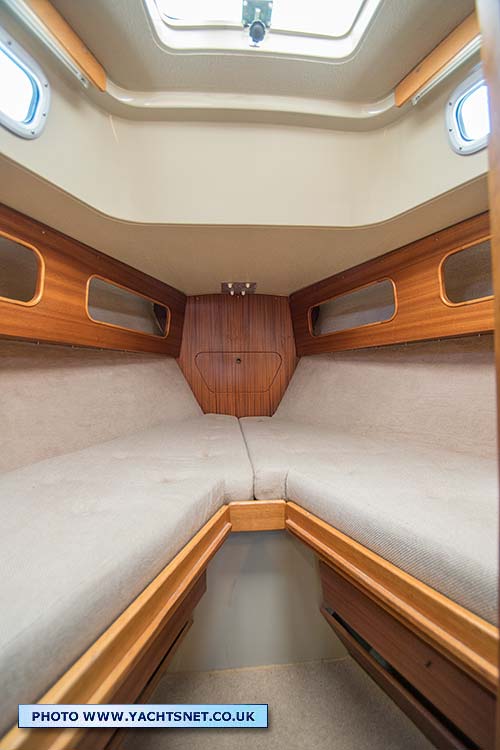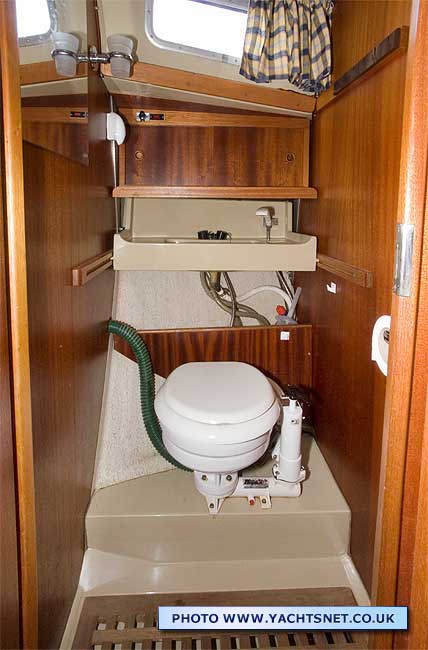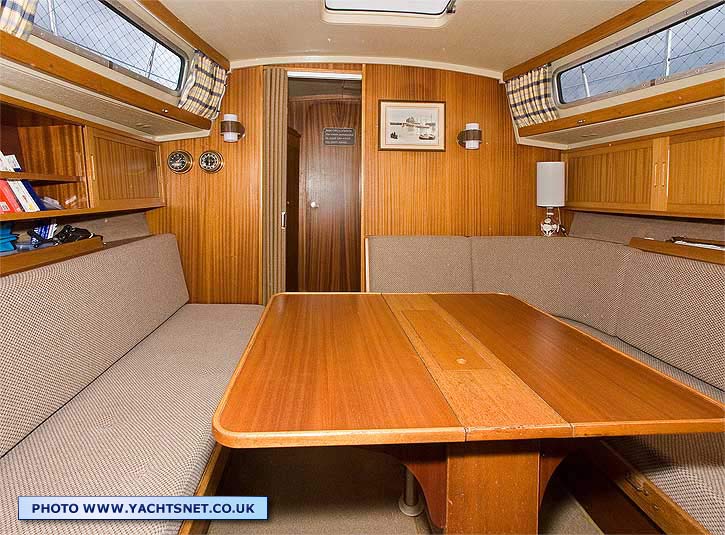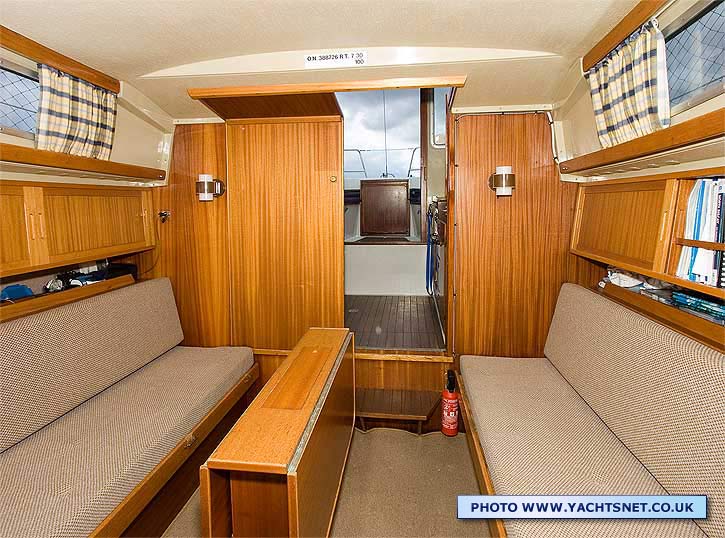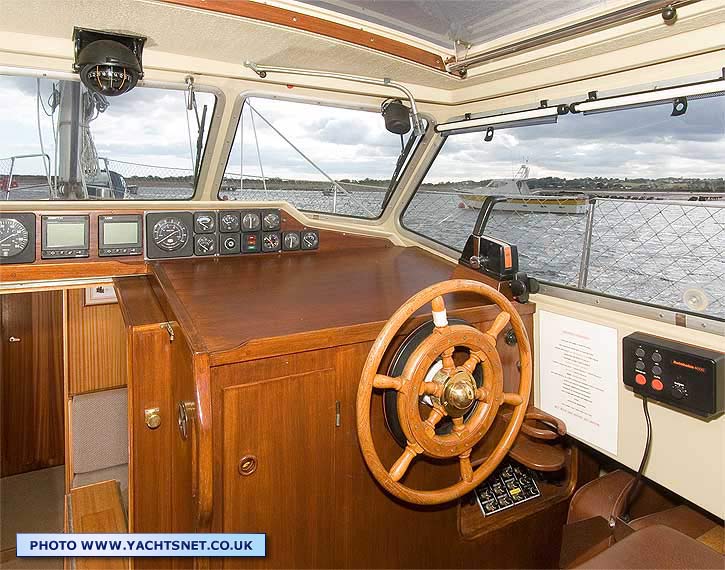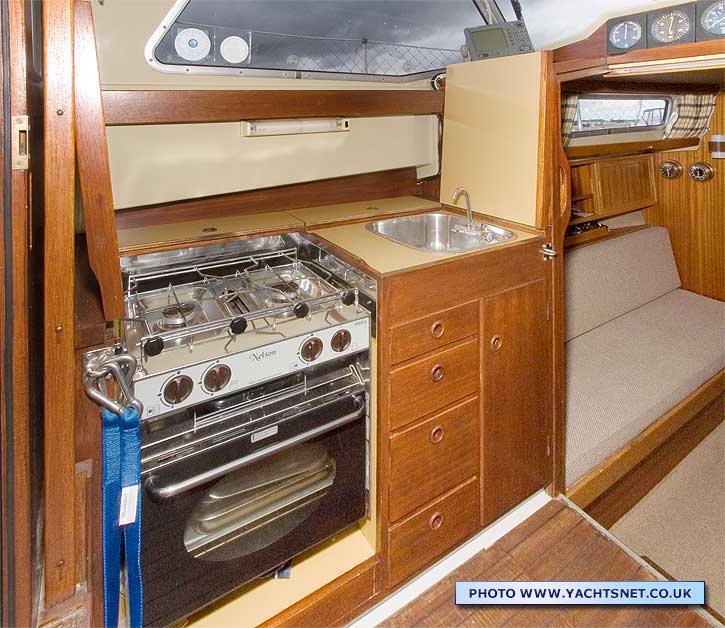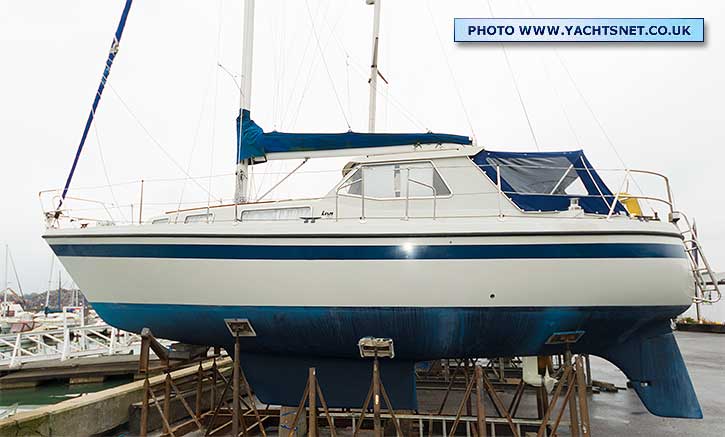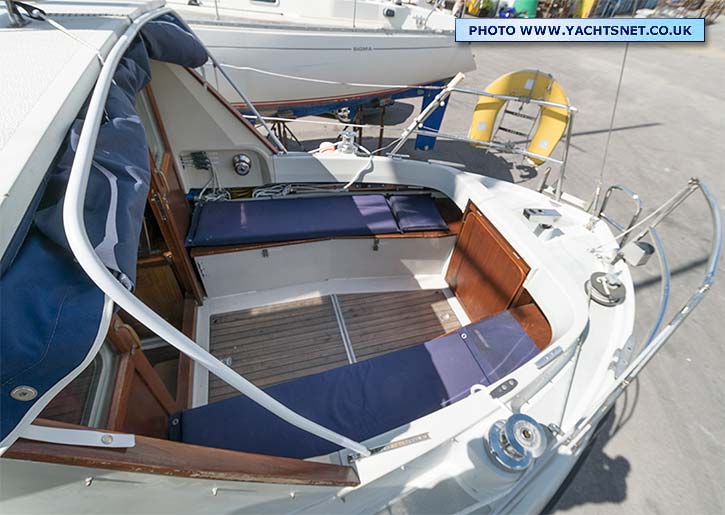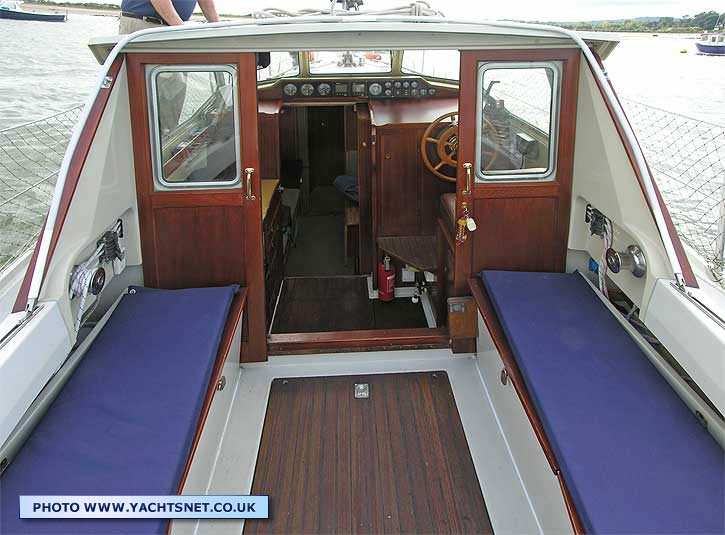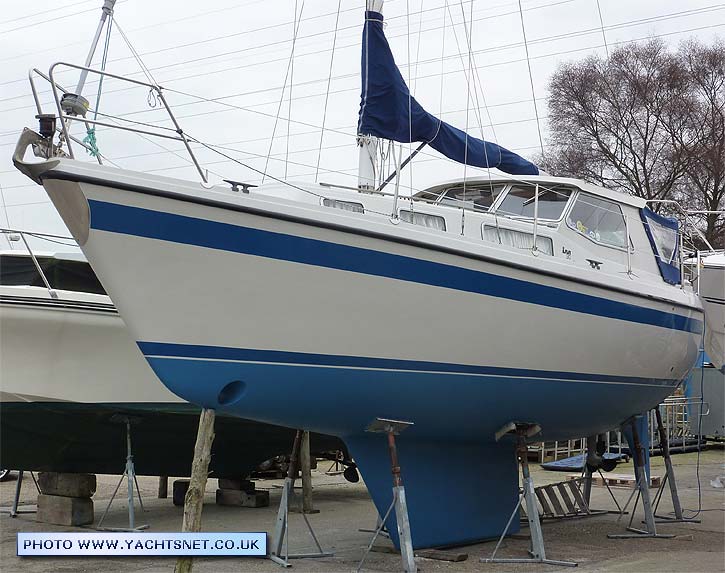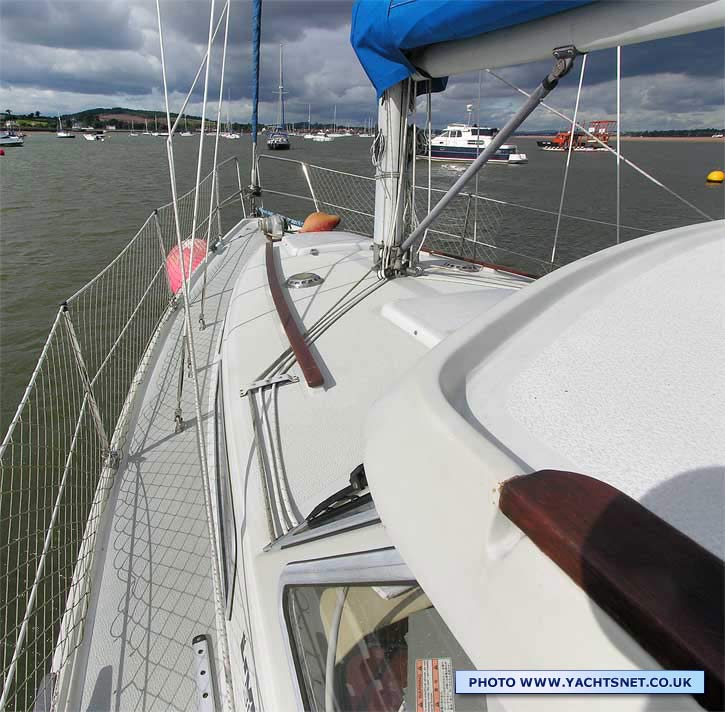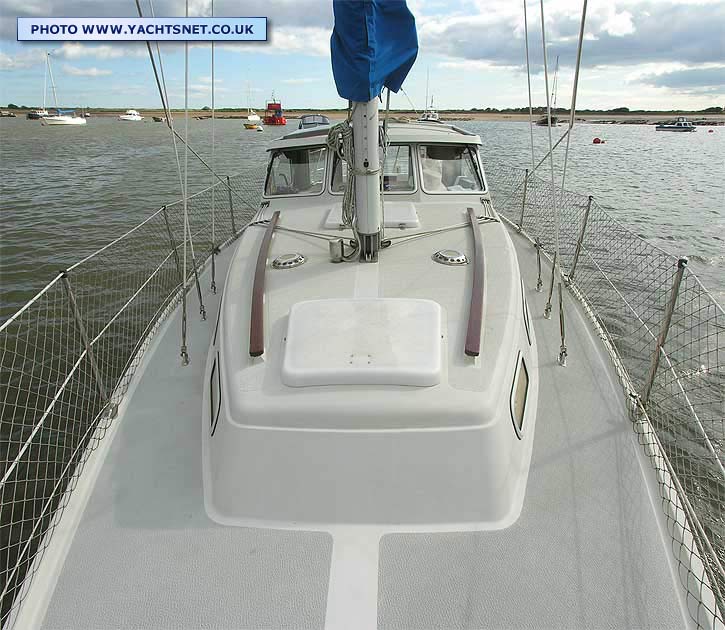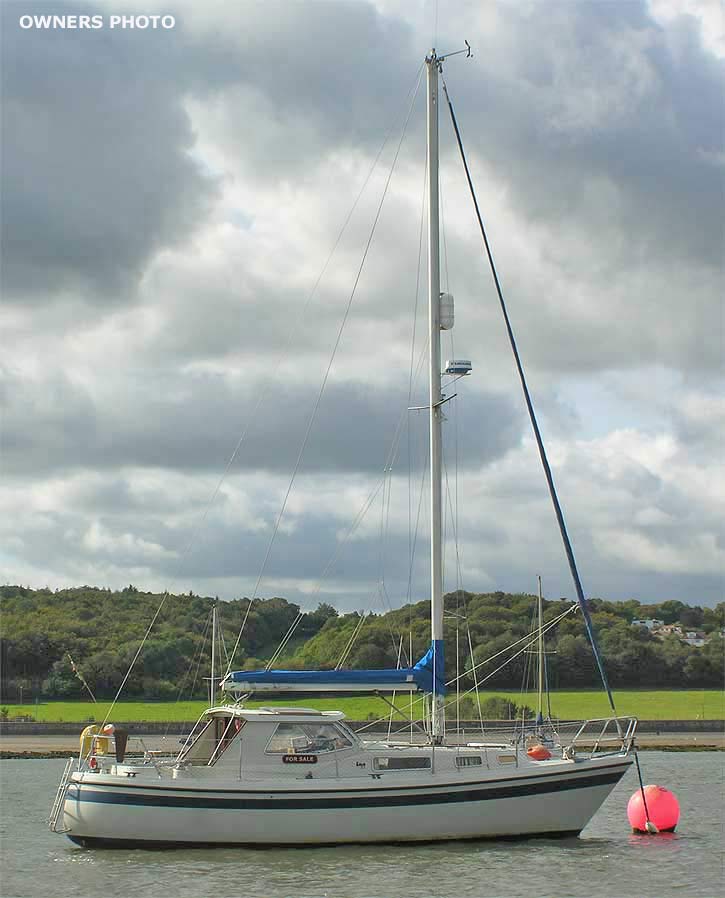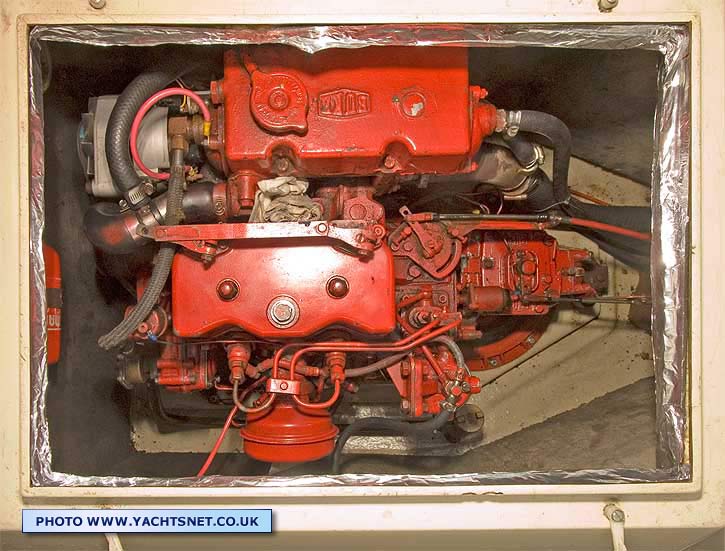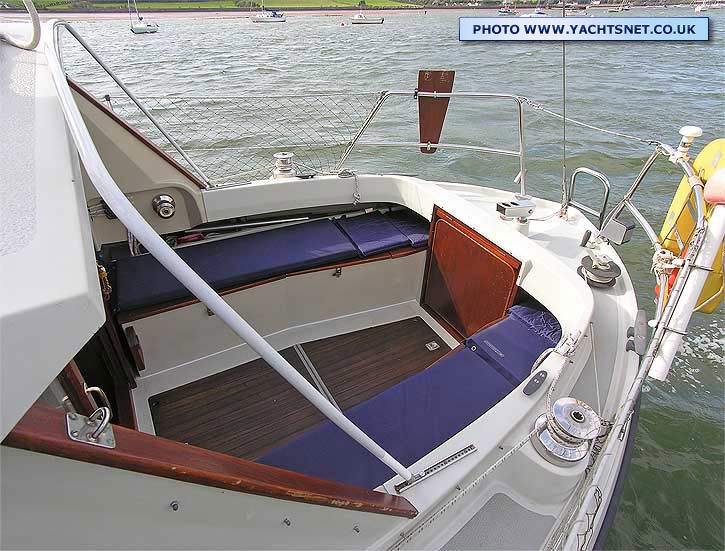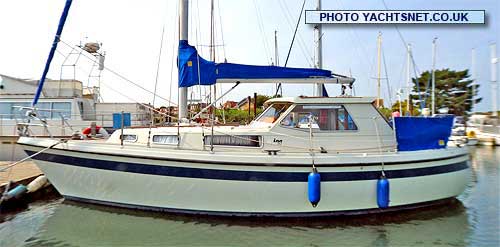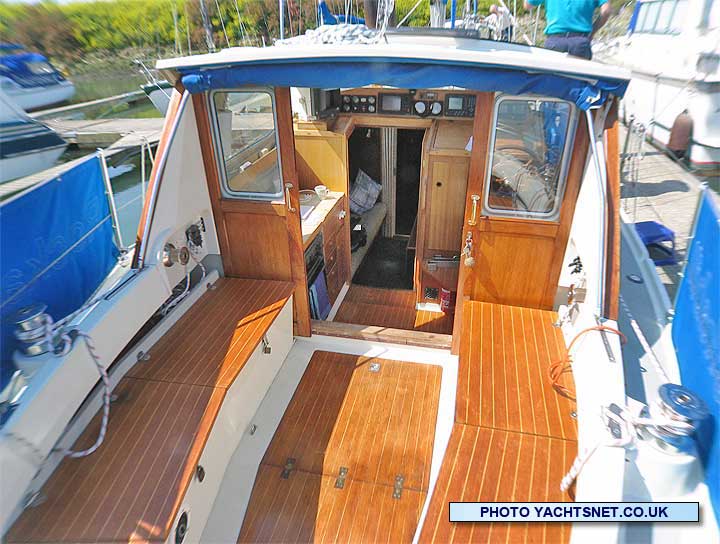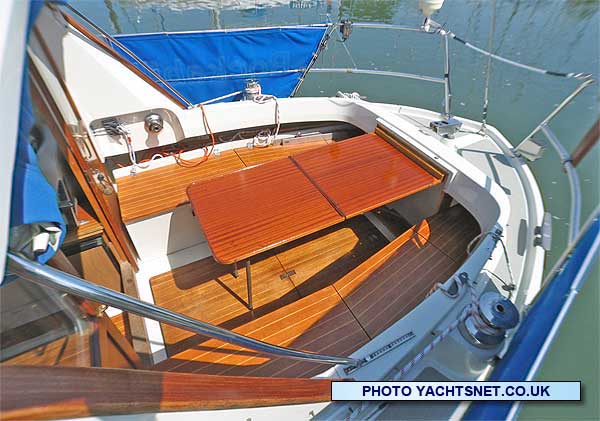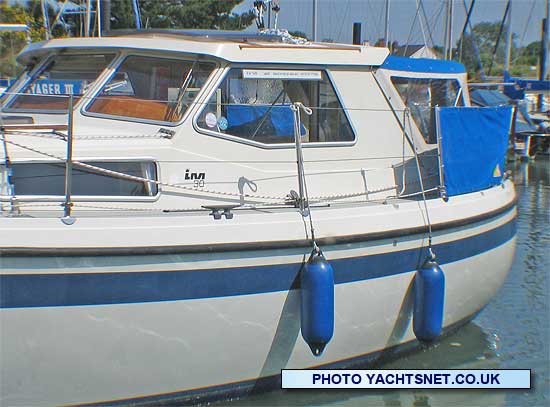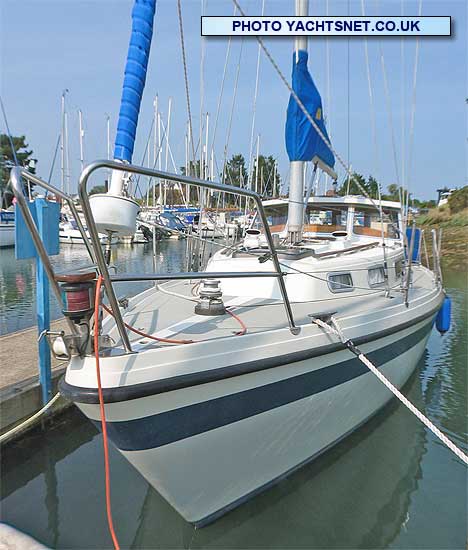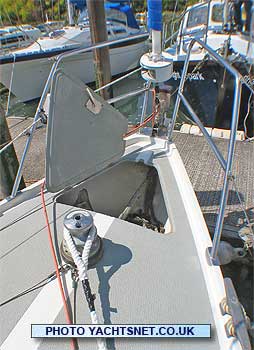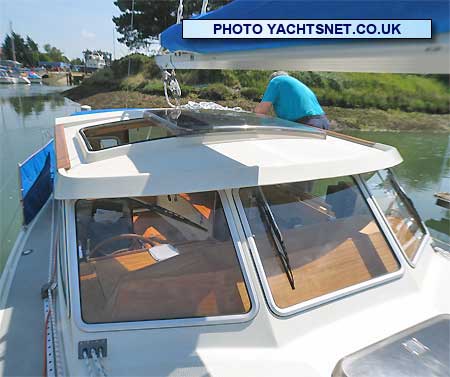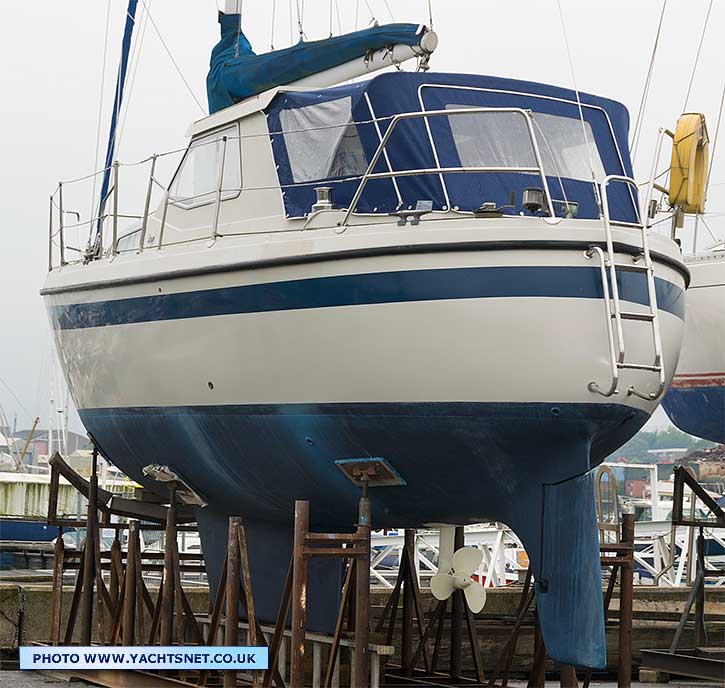| |
|
|
|
|
|
|
|
| © Yachtsnet Ltd. 2000/2025 |
|
|
|
| |
|
|
Yachtsnet's
archive of boat details and pictures
|
| |
The following information and photographs are
displayed as a service to anyone researching yacht types. HOWEVER THE PHOTOGRAPHS AND TEXT ARE COVERED BY COPYRIGHT, AND MAY NOT BE REPRODUCED WITHOUT THE PERMISSION OF YACHTSNET LTD. Details and photographs
are normally based on one specific yacht, but could be a compilation.
No reliance should be placed on other yachts of the same class being
identical. Where common variations exist, we have endeavoured
to indicate this in these archive details. |
LM30 |
Brief details |
Builder |
Originally built by LM Glasfiber AS, Denmark, later
by Scanyachts,
England. |
The LM30 is a double-ended
Scandinavian motorsailer, built to a high quality standard. Although
clearly a motor-sailer, the LM30 is actually a surprisingly good
sailing boat. They were designed from the outset to be easy to handle,
with all lines led back to the well protected cockpit. Both bilge
keel and fin keel versions were built, both having surprisingly
good sailing performance |
LOA |
30' 8" |
Sail area |
478 sq ft main and genoa |
LWL |
26' 0" |
Rig |
sloop |
Beam |
10' 0" |
Cabins |
2 |
Draught |
4' 3" bilge keel or 4' 11" fin keel |
Berths |
5 |
Displacement |
11,200 lbs |
Engine |
Bukh or Volvo diesels |
Ballast |
4,250 lbs |
BHP |
20 - 36 |
Keel type |
Fin or twin cast iron bilge keels, with skeg-hung
rudder |
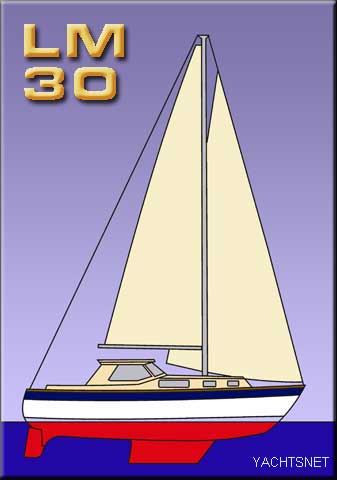
|
Above the waterline the LM30
looks much like a larger version of the smaller LM27,
but whereas the LM27 has a long shallow full keel, the LM30
has a much more modern and more sailing-oriented underbody with either
a single fin keel, or twin bilge keels and skeg-hung rudder.
Overall lengths of 30' 8" and 31' 10" are both quoted
in various sources for the LM30: it is probable that the differences
arise because of variations in measurement points - the stern
extends aft further than at deck level.
Designed by Bent Juuls Andersen and built in Denmark by LM Glasfiber from around
1980 to 1990, the LM30 moulds were later moved to England,
where production continued as the Scanyachts LM30 and later
LM32 (this being based on the same hull mould, and is virtually
identical). LM started life as a furniture factory - and this
shows in the quality of the cabinetwork on their yachts. In
the early 1990s LM ceased production of boats to concentrate
on making GRP blades for large wind turbines, in which field
they are now the largest company worldwide |
|
|
|

